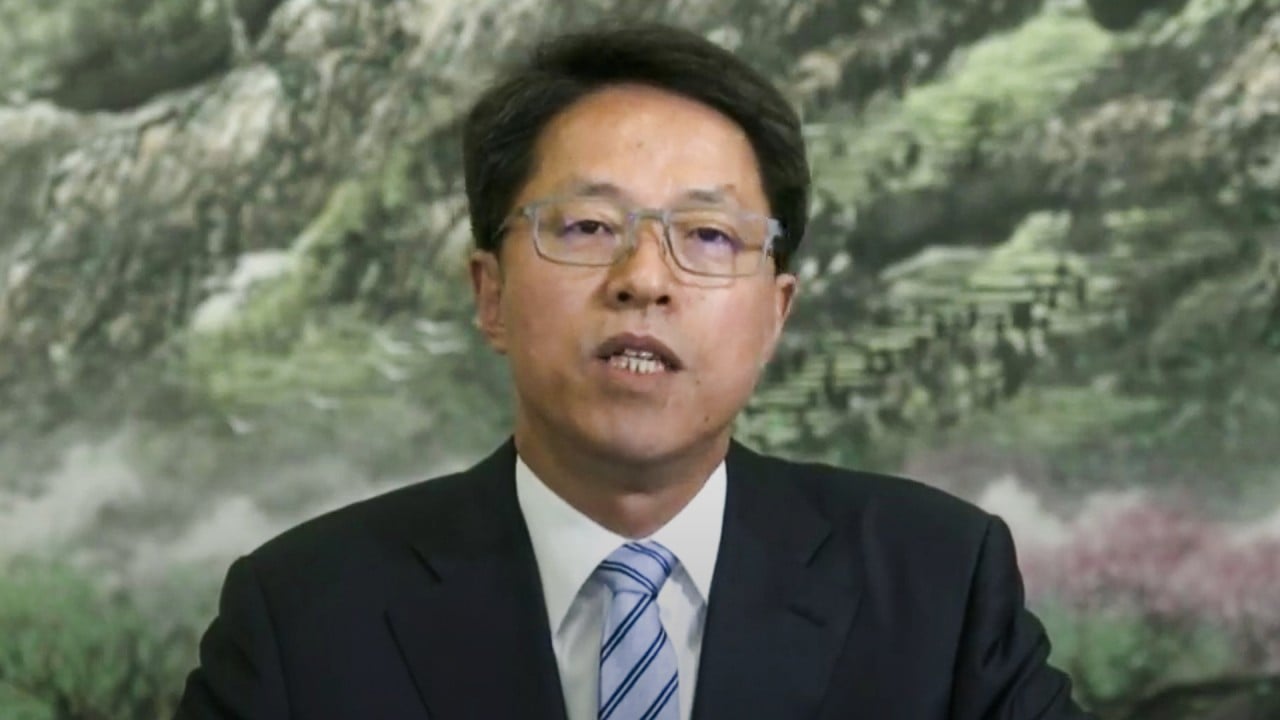
Extradition to mainland China may be possible under new Hong Kong national security law
- Tam Yiu-chung, the city’s sole delegate on the National People’s Congress Standing Committee says Beijing has jurisdiction in certain instances
- Cases involving foreign interference could see people sent across border to stand trial
This came as Yue Zhongming, spokesman for the Legislative Affairs Commission of the NPCSC, which is preparing the new law against acts of secession, subversion, terrorism and foreign interference in the city’s affairs, said the apex body would “speed up” its formulation.
Tam said extradition could be an option and the central government “had the right to do so”.
He added: “If Beijing found it necessary that the case should not be handled by Hong Kong courts, [extradition] could be an option.”

Tam said the exceptional cases which Deng was referring to were those related to defence and foreign affairs, over which Hong Kong courts had no jurisdiction under the Basic Law, the city’s mini-constitution.
“I believe some cases would touch on foreign affairs given the proposed law would regulate the foreign forces that have meddled in Hong Kong affairs,” he said. “This is clearly a matter that needs to be handled by the central government.”
Democratic Party chairman Wu Chi-wai said the national security law and failed extradition bill both allowed Beijing to target people in Hong Kong, and take them across the border to stand trial.
But unlike the extradition bill, Wu said, the national security legislation “brought the mainland’s rule by law system” to Hong Kong.
Hong Kong leader urges opposition camp not to demonise security law
While pro-government figures said only a minority of people would be affected, Wu said human rights lawyers and journalists had been jailed for subverting state power on the mainland.
Although the new law appeared to have not sparked the large-scale protests the extradition bill did, Wu said residents had taken other action, such as emigrating and moving their money out of Hong Kong.
Executive Council member Regina Ip Lau Suk-yee, of the New People’s Party and a former security minister, said taking suspects to the mainland for trial would cause “a great tremor” among residents.
“The legal system on the mainland is very different from Hong Kong’s,” Ip said. “Hongkongers are used to the common law system, with open, transparent trials and human rights protections.”
Gary Chan Hak-kan, vice-chairman of the Democratic Alliance for the Betterment and Progress of Hong Kong, said he hoped most of the cases arising from the new law would be tried locally in a special court, but sending some “very special” cases to the mainland “had to be considered”.
Chan also said the arrangement was different from the extradition bill, which dealt with a greater variety of crimes.
“The national security law has a very narrow scope, targeting only four types of people,” Chan said.

03:18
Hong Kong’s national security law is like ‘anti-virus software’, top Beijing official says
Meanwhile, Tam, who is to attend a meeting of the NPCSC on Thursday, said the law was not on the agenda as yet.
The country’s top legislative body meets every two months, but if the law was not discussed this week, sources from the pro-establishment camp believed Beijing might not want to wait until late August to let any public dissent, triggered by the promulgation of the law, affect the bloc’s performance in September’s Legislative Council elections.
“July would be a good time to have it passed in a designated special meeting,” a source said.
But Professor Fu Hualing, dean of the University of Hong Kong’s faculty of law, said he was not aware of any mainland law that had been passed by the standing committee in a single meeting in the past decade.
Is Hong Kong heading for class boycotts, general strikes over security law?
According to Article 29 of the Legislation Law of the People’s Republic of China, as a general rule, a bill on the agenda of an NPCSC meeting should be put to a vote after deliberation at three sessions of the committee.
But Article 30 of the law states that a bill may be brought to a vote after deliberation at two meetings, if a consensus has been reached among all parties concerned; or may be brought to a vote at one session if a consensus has been reached on a bill that regulates a single matter or amends part of a law.
“I hope the standing committee will take three meetings to endorse the law after deliberating the draft legislation, as well as consulting the views of mainlanders and Hong Kong people,” Fu said.

03:08
Hongkongers fearing national security law see BN(O) passports as sign of hope
Ling Bing, professor of Chinese law at the University of Sydney, echoed that sentiment.
“I believe mainland officials are well aware of the difficulties and challenges involved in the legislative process,” he said. “They should have recognised the importance of ensuring the law is effectively implemented, instead of stirring up further trouble in Hong Kong.
“To this end, listening to views of Hong Kong people is not a formality. I believe it would take at least three meetings for the standing committee to deliberate the law before endorsing it.”
In a joint letter with 85 other organisations, Amnesty International described the law as a “devastating assault on human rights” and urged Beijing to scrap it.
“It criminalises broad, vague ‘offences’ that can encompass any criticism of the government and be used against people peacefully exercising and defending their human rights,” the letter read.
Groups also said national security authorities on the mainland, which could set up branches in Hong Kong under the new law, were responsible for the arbitrary detention and torture of activists and NGO staff.
Additional reporting by Kathleen Magramo



